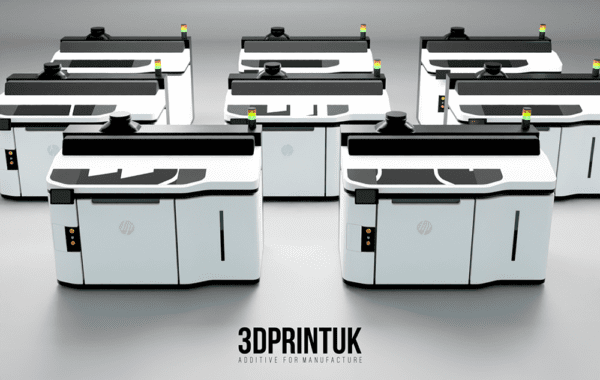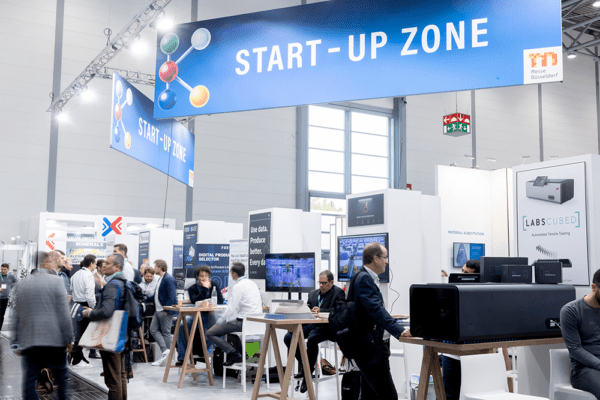
KUKA to Showcase Intelligent Robotic Solutions at Interplas 2021
At Interplas 2021, KUKA Robotics UK and PC Moulding & Automation will demonstrate how plastics manufacturers are developing greater cost-effectiveness through more efficient production methods by utilising robotics and automation.
On stand G80 at Interplas, taking place from 28-30 September at the NEC Birmingham, automation experts from KUKA and PC Moulding & Automation will be on hand to discuss your automated manufacturing requirements. The full case study referenced in this editorial shall also be on display.
Plastic has for many years been one of the most versatile and inexpensive manufacturing materials available for consumer products, traditionally fabricated using manually operated injection moulding machines. Today, as consumer and market attitudes towards single-use plastic products, and the sustainability challenges presented by plastic, manufacturers are becoming more astute to the processes involved in plastic product manufacture, with a focus upon waste reduction, sustainable production processes and cost savings across the process chain.
Robot automation addresses many of the challenges faced in today’s plastics market, presenting solutions that address quality, quantity and cost. More and more process steps can be carried out in a single work operation. Value creation increases, while the logistical effort for the transfer of materials decreases, through an increasing degree of automation integration. Ground-breaking solutions are leading to growing productivity and making production processes more flexible.
Consider a scenario involving the production of components intended for use in the medical sector. Across two robotic cells, one of two interlocking pieces that form a functioning implement are produced using injecting molten material into a mould. Inter and postproduction processes, incorporating laser and vision technology, mark each component with a serial number and scan for imperfections ahead of an industrial robot selecting and depositing each part into a bin consummate with that particular mould reference.
Historically the injection moulding unloading process would have been manual, which gave rise to traceability issues. While manual visual checks would have taken place, substandard moulded parts could still creep through quality control. As such, when parts had been manufactured and distributed, in this case to the Far East, anomalies were only identified when the product was introduced into the process chain. The manual production process afforded no traceability, i.e. no batch numbers aligned to a mould sequence could be identified. Therefore, the entire shipment had to be scrapped, which was both costly and dealt the manufacturing process a blow through costly downtime.
Having automated the production process, the manufacturer could narrow down any potentially defective parts to a particular mould sequence. That batch could be quickly identified and locked down/removed from the production run, thus not impacting upon the entire shipment.
As a result of automating the production process, in addition to quality considerations, both health and safety and productivity facets within the operation were also identified and satisfied, utilising industrial robots. Removal of the moulded product, rather by manual/operator means, are now extracted using a cartesian robot with end of arm tooling, designed specifically for this particular process. Post laser printing, components are then taken from a conveyor by a second six-axis robot with vacuum end of arm tooling and placed into one of six corresponding bins. Such is the accuracy and repeatability of the automated cell; production can continue with no manual intervention for eight hours, supporting productivity gains and satisfying a recent increase in demand versus supply.
The use of production automation in the plastics processing industry and for component mould making is increasing. However, in such a traditional manufacturing sector, it often causes uncertainty, especially for SME’s: is it financially viable to rethink production methods? What about the return on investment? How quickly can automated solutions be implemented, and are they flexible? The short answer: automation is definitely worth pursuing. More efficient processes mean lower costs over the long term. And with a tailor-made solution, the investment will quickly pay off.
But, once a product’s life is complete or has a redesign, is the/a robot cell future proof? In most, and in this case, yes: with new mould tools, end of arm tooling on the demould robot, nest change on the conveyor and finally, new laser artwork and vision program and the cell could be producing a completely different part, size-dependent of course. This fluidity of manufacturing capability empowers businesses to retain and attract new customers, even encroach into new markets.
Having a reputable and experienced integrator/partner on hand to ensure the successful design and implementation of an automation solution is key: one that possesses both the sector expertise and knowledge of the manufacturing processes and has a proven capability in conceptualising and delivering automated robotic solutions.
Common challenges such as shorter product cycles and a greater variety of products, not to mention a shortage of skilled workers, require quick solutions. But that’s not to suggest that the decision to utilise automated robotic processes shouldn’t be one that is taken hastily. In-depth process chain qualification is required to understand just where value can be added: don’t automate for the sake of automating – understand the features and benefits of the technology and what can be achieved and, more importantly, what the operational returns shall be.
Click here to register for Interplas 2021, and don’t forget to visit KUKA and PC Moulding & Automation on stand G80 to discuss your automated manufacturing requirements.
![]()
KUKA Robotics UK Ltd
+44 121 505 9970
Website
Email






